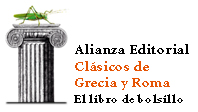LA TRANSMISIÓN DE MANETÓNManetho’s transmission
Fátima Aguayo Hidalgo
Resumen
La secuencia de dinastías egipcias tal y como la conocemos hoy día proceden, en gran medida, de Manetón. Contenidas en su Historia de Egipto (Αἰγυπτιακά), sus listas de reyes ofrecían una visión del pasado egipcio que tomaba como punto de partida la lista cronológica de los faraones agrupados en dinastías. Gracias a la adición de textos narrativos asignados a las distintas secciones de las listas de reyes, las listas de Manetón representan una innovación respecto a sus precedentes. A pesar de su importancia, sólo conservamos los Αἰγυπτιακά de manera fragmentaria, siendo Flavio Josefo el gran transmisor del texto de Manetón. A la problemática de la conservación del texto se añaden otros problemas concernientes a la transmisión que habrían adulterado la Historia de Egipto original, como el uso de la obra en la polémica entre egipcios y judíos y la creación de resúmenes de la misma (epítomes). Además de afectar a los Αἰγυπτιακά, estas modificaciones habrían alterado la información sobre Manetón mismo.
Palabras clave: historiografía; Josefo; Manetón; cronología
Abstract
Egyptian’s king lists as we know them today comes largely from Manetho. Contained in his History of Egypt (Αἰγυπτιακά), these lists of Egyptian kings provide a vision of the Egyptian past that took as a starting point the chronological list of Pharaohs grouped into dynasties. Thanks to the addition of narrative texts assigned to the different sections of the king lists, Manetho’s lists represent an innovation with respect to their precedents. Despite their importance, we only preserve Αἰγυπτιακά in a fragmentary way, with Flavius Josephus being the great transmitter of Manetho’s work. To the problem of the preservation of the text are added other problems concerning the transmission that would have adulterated the original History of Egypt, such as the use of the work in the controversy between Egyptians and Jews, and the creation of summaries of it (epitomes). In addition to affecting Αἰγυπτιακά, these modifications would have altered the information about Manetho himself.
Keywords: historiography; Josephus; Manetho; chronology
Referencias bibliográficas
Assmann, J. (2011) Cultural Memory and Early Civilization: Writing, Remembrance, and Political Imagination, Cambridge, Cambridge University Press.
Barclay, J.M.G. (2007) Flavius Josephus: Translation and Commentary: Against Apion, vol. 10, Leiden, Brill.
Barclay, J.M.G. (2016) «Against Apion», en H. Howell Chapman & Z. Rodgers (eds.) A Companion to Josephus, Chichester, Wiley-Blackwell, 75-85.
Beard, M. (2003) «The Triumph of Flavius Josephus», en A.J. Boyle & W.J. Dominik, (eds.) Flavian Rome: Culture, Image, Text, Leiden, Brill, 543-558.
Boeckh, A. (1845) Manetho und die Hundssternperiode, ein Beitrag zur Geschichte des Pharaonen, Berlin, Verlag von Veit & Comp.
Boyle, A.J. (2003) «Introduction: Reading Flavian Rome», en A.J. Boyle & W.J. Dominik, (eds.) Flavian Rome: Culture, Image, Text, Leiden, Brill, 1-67.
Bruce, I.A.F. (1964) «Nerva and the Fiscus Judaicus», Palestine Exploration Quarterly 96, 34-45.
Christesen, P. (2007) Olympic Victor Lists and Ancient Greek History, Cambridge, Cambridge University Press.
Den Hollander, W. (2014) Josephus, the Emperors and the City of Rome, Leiden, Brill.
Dillery, J. (2015) Clio’s other Sons: Berossus & Manetho, Ann Arbor, University of Michigan Press.
Frankfurter, D. (2010) «Religion in Society: Graeco-Roman», en A.B. Lloyd A Companion to Ancient Egypt, vol. 1, Chichester, Wiley-Blackwell, 526-546.
Fruin, R. (1847) Manethonis Sebennytae Reliquiae, Leiden, J.H. Gebhard et socios.
Galimberti, A. (2016) «The Emperor Domitian», en A. Zissos (ed.) A Companion to the Flavian Age of Imperial Rome, Chichester, Wiley-Blackwell, 92-108.
Goodman, M. (1989) «Nerva, the Fiscus Judaicus and Jewish Identity», Journal of Roman Studies 79, 40-44.
Goodman, M. (2005) «The Fiscus Iudaicus and Gentile Attitudes to Judaism in Flavian Rome», en J. Edmondson, S. Mason & J. Rives (eds.) Flavius Josephus and Flavian Rome, Oxford, Oxford University Press, 167–77.
Gruen, E.S. (2002) Diaspora: Jews amidst Greek and Romans, Cambridge, Harvard University Press.
Gutschmid, A. (1893) Kleine Schriften, vol. 4, Leipzig, Teubner.
Heemstra, M. (2010) The Fiscus Judaicus and the Parting of the Ways, Tübingen, Mohr Siebeck.
Isaac, B. (2004.) The Invention of Racism in Classical Antiquity, Princeton, Princeton University Press.
Lang, P. (2014) «Manetho (609)», en I. Worthington (ed.) Brill’s New Jacoby, URL: http://dx.doi.org/10.1163/1873-5363_bnj_a609
Laqueur, R. (1928) «Manethon», en A.F. Pauly, G. Wissowa & W. Kroll Paulys Realencyclopädie Der Classichen Altertumswissenschaft, vol. 14, Stuttgart, Alfred Druckenmüller Verlag, 1060-1105.
Mason, S. (2016) «Josephus as a Roman Historian», en H. Howell Chapman & Z. Rodgers (eds.) A Companion to Josephus, Chichester, Wiley-Blackwell, 89-107.
Mélèze-Modrzejewski, J. (1984) «Dryton le Crétois et sa famille ou les marriages mixtes dans l’Égypte hellénistique», en H. Van Effenterre (ed.) Aux origins de l’hellénisme. La Crète et la Grèce. Hommage à Henri Van Effenterre, Histoire ancienne et médiévale vol. 15, Paris, Publications de la Sorbonne, 353-377.
Meyer, E. (1904) Aegyptische Chronologie, Berlin, Reimer.
Mosshammer, A.A. (1984) Georgii Syncelii Ecloga Chronographica, Leipzig, Teubner.
Mosshammer, A.A. (2008) The Easter Computus and the Origins of the Christian Era, Oxford, Oxford University Press.
Morrison, A.D. (2010) «Greek Literature in Egypt» en A.B. Lloyd A Companion to Ancient Egypt, vol. 1, Chichester, Wiley-Blackwell, 755-778.
Moyer, I.S. (2011) Egypt and the Limits of Hellenism, Cambridge, Cambridge University Press.
Otto, W. (1908) Priester und Tempel im Hellenistischen Ägypten, vol. 2, Leipzig, Teubner.
Page, T.E. (1940) «Introduction», en W.G. Waddell (ed.) Manetho, Cambridge: Massachusetts, Harvard University Press, vii-xxviii.
Pfeiffer, R. (1981) Historia de la Filología Clásica: de los Comienzos hasta el Final de la Época Helenística, versión española de J. Vicuña, M.R. Lafuente, vol. 1, Madrid, Editorial Gredos.
Redford, D.B. (1986) King-Lists, Annals and Day-Books: A Contribution to the Study of the Egyptian Sense of History, Mississauga, Benben Publications.
Rodríguez de Sepúlveda, M. (1994) Flavio Josefo: Autobiografía y Contra Apión, Madrid, Editorial Gredos.
Selden, D.L. (1998) «Alibis», Classical Antiquity 17 n. 2, 289-412, DOI: 10.2307/25011086.
Sterling, G.E. (1992) Historiography and Self-Definition Josephos, Luke-acts and Apologetic Historiography, Leiden, Brill.
Susemihl, F. (1891) Die Geschichte der griechischen Litteratur in der Alexandrinerzeit, vol. 1, Leipzig, Teubner.
Verbrugghe, G.P. & Wickersham, J.M. (1996) Berossos and Manetho: Introduced and Translated: Native Traditions in Ancient Mesopotamia and Egypt, Ann Arbor, University of Michigan Press.
Zissos, A. (2016) «The Flavian Legacy», en A. Zissos (ed.) A Companion to the Flavian Age of Imperial Rome, Chichester, Wiley-Blackwell, 487-534.
Revista
-
Sobre la revista
Página principal
-
Estatutos
Estatutos de la Revista Estudios Clásicos
-
Código ético
Declaración de buenas prácticas
-
Normas de recepción y envío
Indicaciones para envíos de artículos
-
Equipo editorial
Consejos de redacción y asesor
-
Comité de honor
Comité de honor
Información
-
Para autores
Publicar con nosotros
-
Para evaluadores
Normas para evaluar artículos
-
Para bibliotecas
Información bibliográfica
-
Contacto
Cuestiones y preguntas
Publicar en EClás
-
Envío de originales
Artículos y reseñas
-
Normas de publicación
Descarga normas en PDF
-
Estilo CSL EClás
Estilo CSL EClás
-
Índices de calidad
Bases de datos e impactos


 c/ Serrano, 107
c/ Serrano, 107